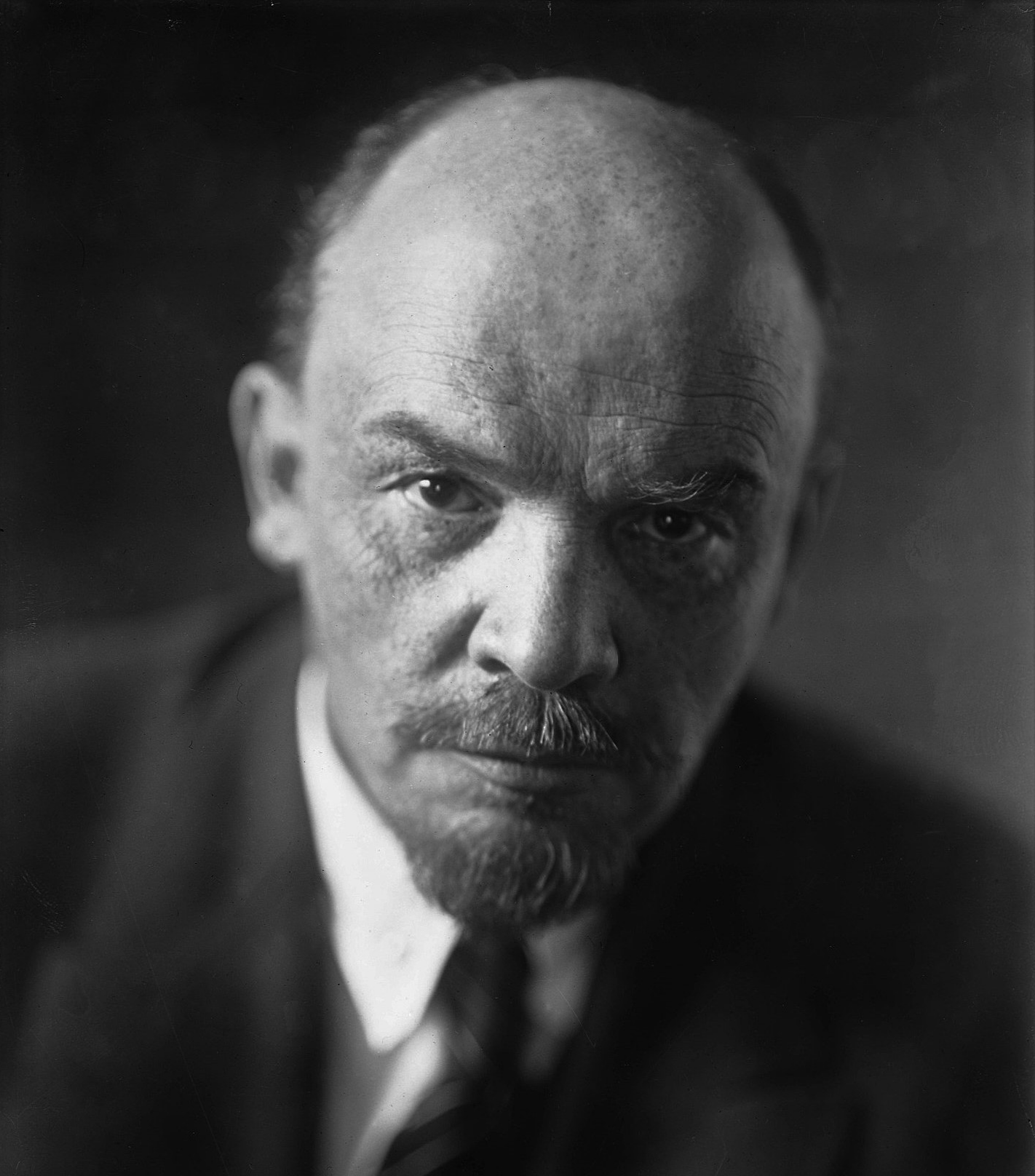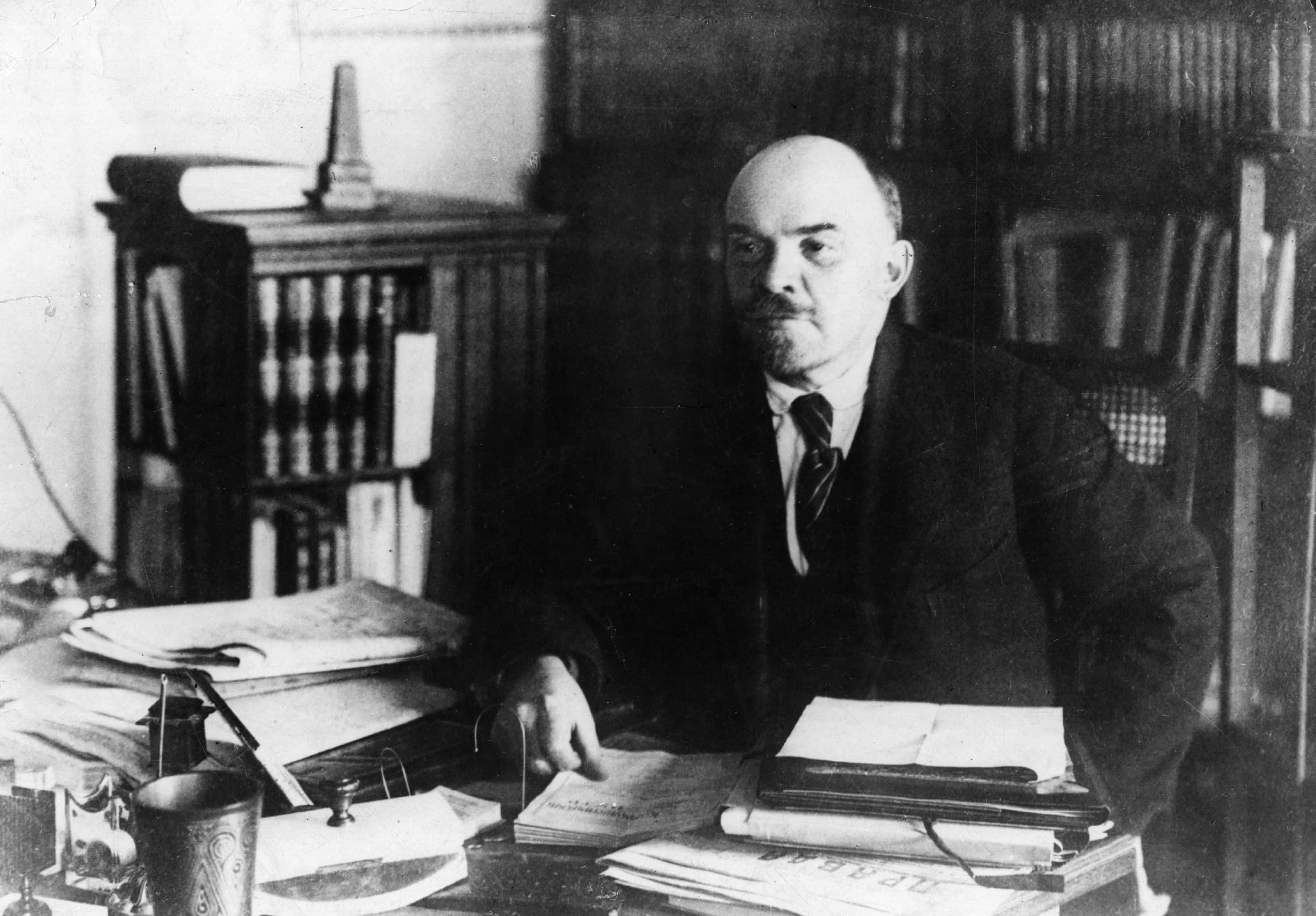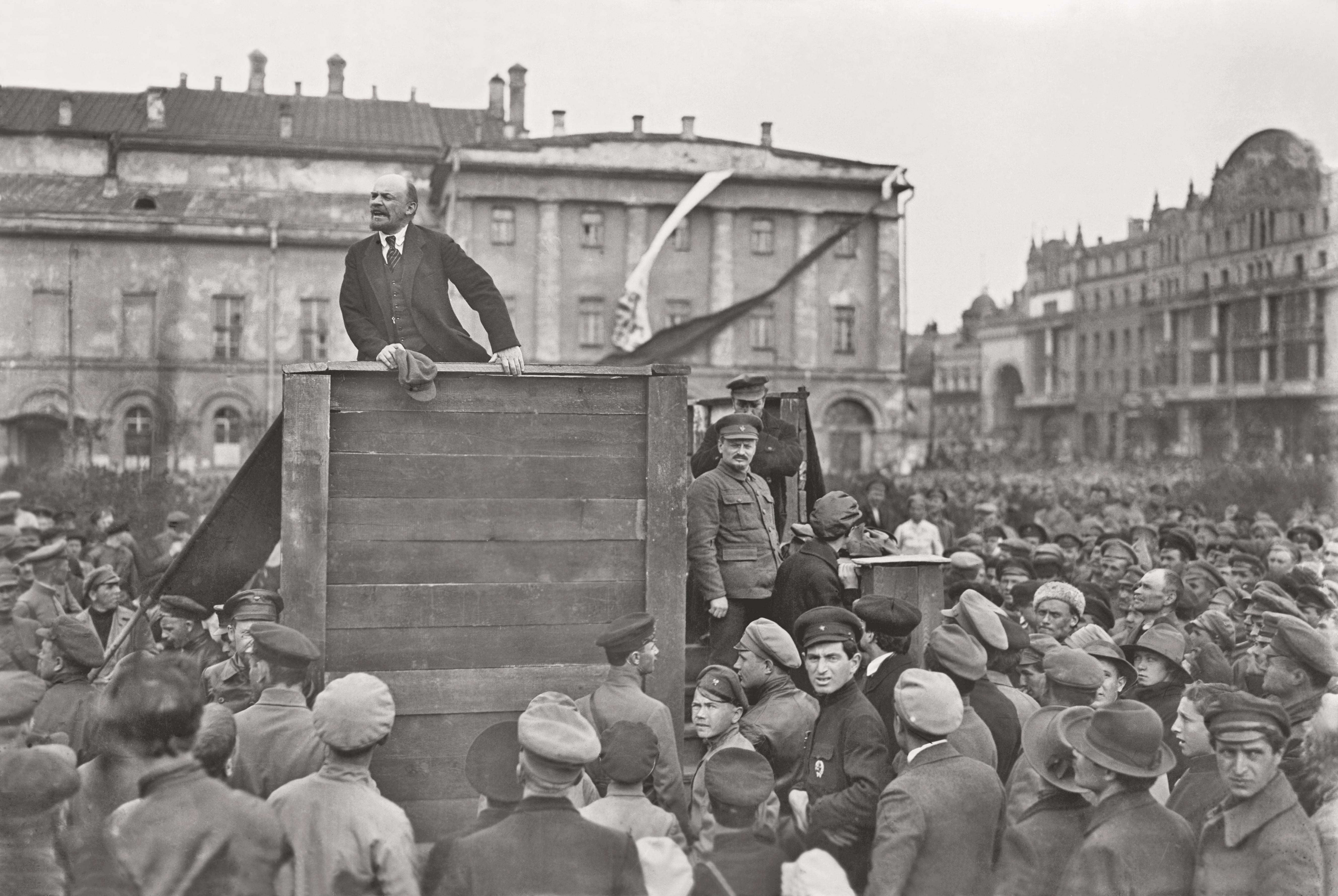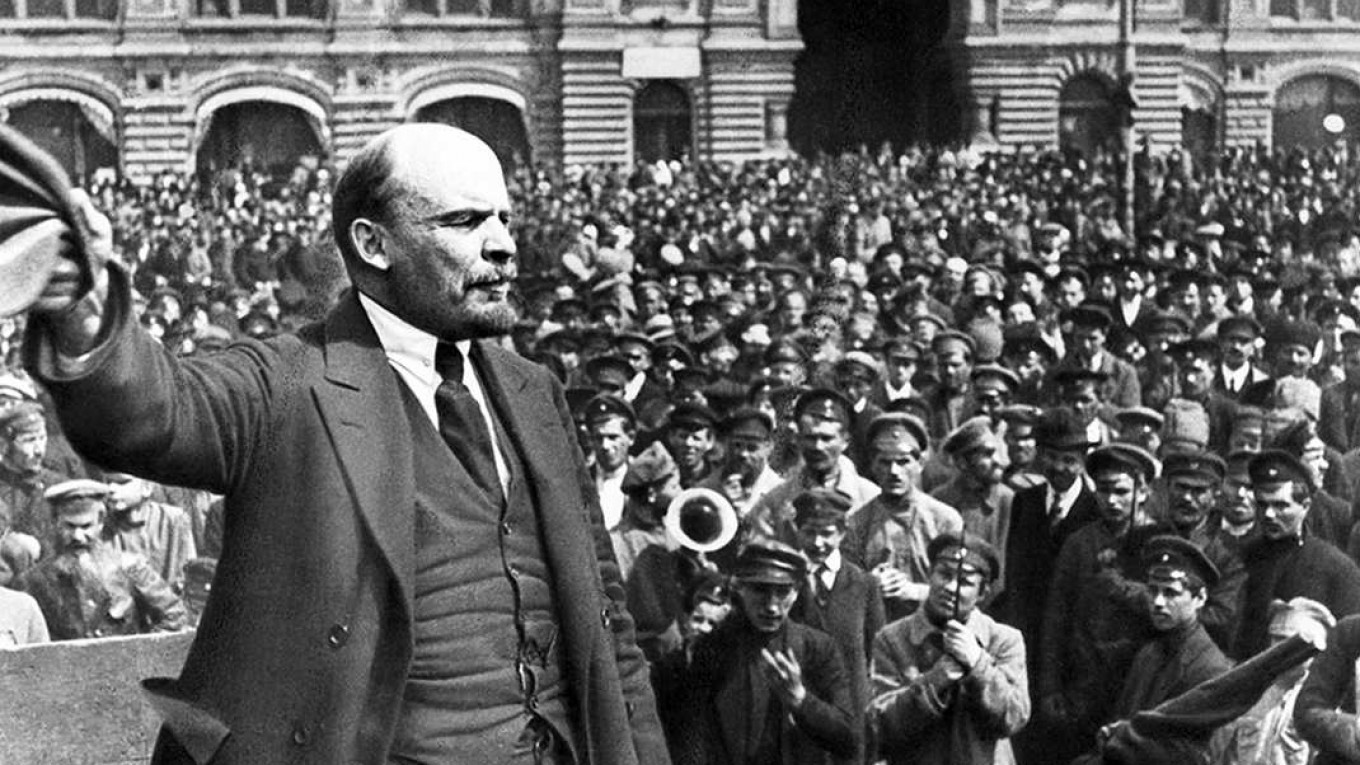Lenin’s Train Ride And Germany’s Desperate Gamble
In April 1917, Vladimir Lenin's secretive train journey from Switzerland to Petrograd was a pivotal moment in world history, orchestrated by Germany to destabilize Russia. Amidst the backdrop of World War I and the February Revolution's power vacuum, Germany facilitated Lenin's return to incite a socialist revolution, viewing him as a tool to weaken Russia. Lenin's arrival in Petrograd electrified the Bolshevik movement, leading to the issuance of his April Theses, which demanded power transfer to the Soviets and an end to Russia's war involvement. This geopolitical maneuver sparked the October Revolution, resulting in the Bolshevik seizure of power and the establishment of the first communist state. While Germany's gamble initially paid off by removing Russia from the war, it ultimately unleashed a communist regime that would later oppose Germany and reshape global politics for decades.
Vladimir Lenin's return to Russia in April 1917 was facilitated by Germany's strategic decision to destabilize Russia during World War I, as they provided him with a secure passage through hostile territories.
Lenin, having spent years in exile in Switzerland, was determined to overthrow the Provisional Government led by Alexander Kerensky, which he deemed a continuation of the bourgeois regime.
The train journey was tense due to ideological differences among the exiles and the need for secrecy to avoid backlash against Lenin's German-assisted return, which was symbolically marked by a 'sealed' train considered extraterritorial.
Upon arriving in Petrograd, Lenin immediately denounced the Provisional Government and called for 'peace, land, and bread,' rapidly mobilizing the Bolshevik movement towards the October Revolution.
Germany's short-term success in removing Russia from the war came at a long-term cost, as Lenin's Bolshevik regime established the world's first communist state, posing a new ideological challenge and reshaping global politics.
The train journey underscored the geopolitical implications of Lenin's actions, as it set the stage for the Bolsheviks' eventual seizure of power and the creation of the Soviet Union.
Lenin's arrival and subsequent issuance of the April Theses called for an end to Russia's involvement in World War I and the transfer of power to the Soviets, fueling the revolutionary momentum that led to the fall of the Provisional Government.
In April 1917, amidst the chaos of WWI and political upheaval in Russia, Vladimir Lenin embarked on a journey that would change the course of history. His top-secret train trip home from exile in Switzerland to Petrograd (modern-day St Petersburg) was a calculated gamble by Germany to ignite a revolution that still resonates today.
Exile And Opportunity
Before 1917, Lenin had spent years in exile in Switzerland, isolated from the revolutionary movements in Russia. The abdication of Tsar Nicholas II during the February Revolution created a power vacuum. A Provisional Government had formed under Alexander Kerensky, based in the old tsarist headquarters at the Winter Palace. Lenin dismissed the Kerensky Government as just a continuation of the old "bourgeois" order. He was determined to return to Russia and lead the Bolsheviks toward a genuine socialist revolution.
 Pavel Zhukov, Wikimedia Commons
Pavel Zhukov, Wikimedia Commons
He Was Cut Off
However, there was a problem: Europe was at war, and Lenin, a known revolutionary, needed to cross hostile territory. Traveling through Allied nations was impossible: Lenin had openly opposed the war, labeling it imperialist slaughter. The only route was through Germany, Russia’s enemy.
Germany’s Secret Weapon
Ironically, it was the German government that offered Lenin a solution. Eager to destabilize Russia and knock it out of the war, German authorities saw Lenin as a useful tool. By helping him return, they hoped he would fuel internal unrest and weaken Russia’s resolve on the Eastern Front.
The Sealed Train
Arrangements were made for Lenin and a group of fellow exiles to travel in a sealed train across Germany. The "sealed" nature of the train was symbolic — Lenin insisted that the carriage be treated as extraterritorial, like a moving embassy, to avoid accusations of collaboration with the enemy. In reality, the Germans were more than happy to provide safe passage.
 Getty Images
Getty Images
The Secretive Journey Begins
On April 9, 1917, Lenin, his wife Nadezhda Krupskaya, and about 30 other revolutionaries boarded the train in Zurich. The group included Bolsheviks and other socialist activists eager to return to Russia. The political stakes and the ideological differences among the fellow travellers made the journey a tense one.
They Took The Long Way Home
The train traveled north through Germany, carefully avoiding sensitive areas. At one point the passengers were allowed to leave the train to overnight in Frankfurt. When they reached the Baltic coast, Lenin’s group boarded a ferry to neutral Sweden, and from there continued by rail through Finland. During the journey, secrecy was paramount to avoid Allied interference or public backlash in Russia over his German-assisted return.
Arrival In Petrograd
On April 16, 1917, Lenin arrived at Finland Station in Petrograd to a crowd of supporters. He immediately delivered a fiery speech, denouncing the Provisional Government and calling for "peace, land, and bread." His sudden return electrified the Bolshevik movement and shocked political moderates who feared his radical agenda.
 Grigory Petrovich Goldstein, Wikimedia Commons
Grigory Petrovich Goldstein, Wikimedia Commons
He Didn’t Waste Time
Lenin wasted no time issuing his April Theses, a set of directives demanding the transfer of power to the Soviets (workers' councils) and an immediate end to Russia’s involvement in World War I. His arrival marked the beginning of a rapid escalation toward the October Revolution.
A Journey That Sparked A Revolution
Lenin’s train trip wasn’t just a personal return from exile — it was a geopolitical maneuver that helped trigger the fall of the Provisional Government. By November 1917, Lenin and the Bolsheviks seized power, pulling Russia out of the war and setting the foundation for the world’s first communist state. The vision of a communist state, long feared in the capitalist West, was now a reality.
Short-Term Gain, Long-Term Consequences
Germany’s gamble paid off in the short term, as Russia exited the war with the Treaty of Brest-Litovsk in 1918. However, it also unleashed a force that would later stand against Germany and reshape global politics for decades as Lenin and the Bolsheviks imposed totalitarian communist rule in the USSR.
 Vladimir Lenin, Wikimedia Commons
Vladimir Lenin, Wikimedia Commons
The Train That Carried A Revolution
Lenin’s secret train journey from Switzerland to Petrograd was one of history’s most dramatic and consequential trips. The sealed train carried the seeds of revolution, and the destiny of a nation forever altered when Lenin stepped onto the platform in Petrograd.
You May Also Like:
42 Radical Facts About Karl Marx
41 Steely Facts About The Iron Curtain
Tragic Facts About The Imperial Romanovs, The Last Tsars
Sources: 1, 2, 3